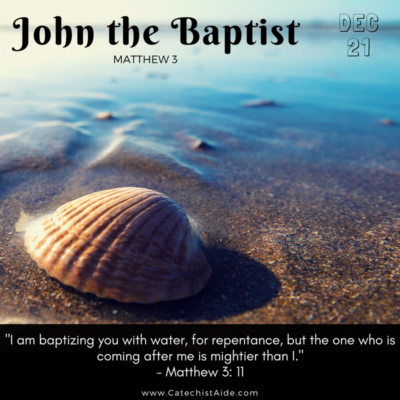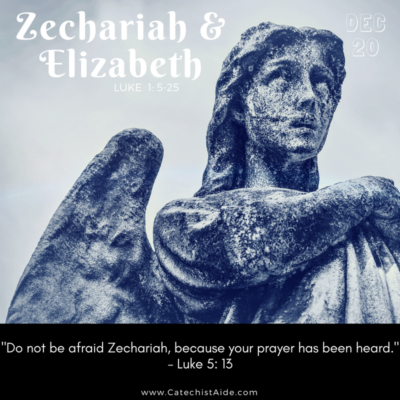December 21: John the Baptist
Traditional Ornament: Clam Shell
Reading: Matthew 3
“I am baptizing you with water, for repentance, but the one who is coming after me is mightier than I.” (Matthew 3:11)
When John the Baptist appeared on the scene, there had not been a prophet among the Israelites for hundreds of years. It may be hard for us to understand the importance of having a prophet in our midst if we think of them as nothing more than fortunetellers or seers. For the ancient Israelites however, a prophet meant much more. The role of the prophet was fundamental to their relationship with God. It was the prophet who called the people of Israel to repentance when they had fallen away. It was also the prophet who strengthened the Israelites and called them into a closer union with the Lord.
It’s no surprise then when we read that “at that time Jerusalem, all Judea, and the whole region around the Jordan were going out to him and were being baptized by him in the Jordan River as they acknowledged their sins.” (Matthew 3: 5) And what John the Baptist said to those who came out to see him was that the time of the Messiah was finally at hand. John prepared the people of Israel for the coming of Christ through a baptism of repentance. We are called to prepare, in this same way, for the coming of Christ this Advent and when He comes again.
© 2017 Catechist’s Aide





